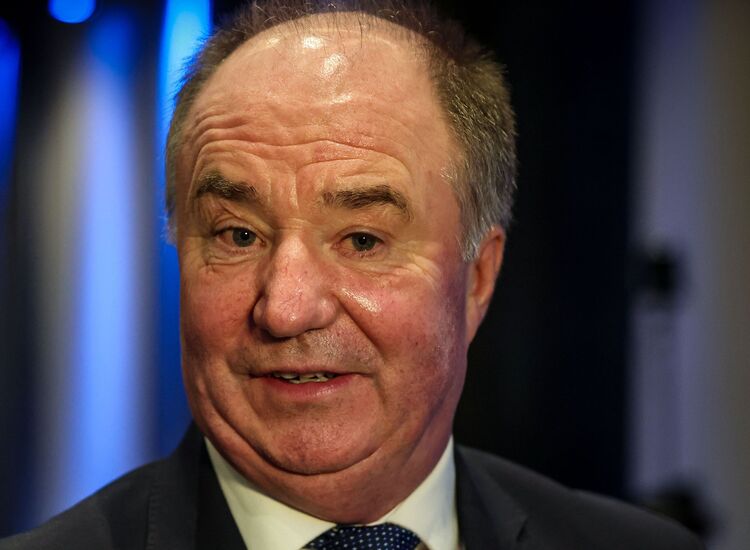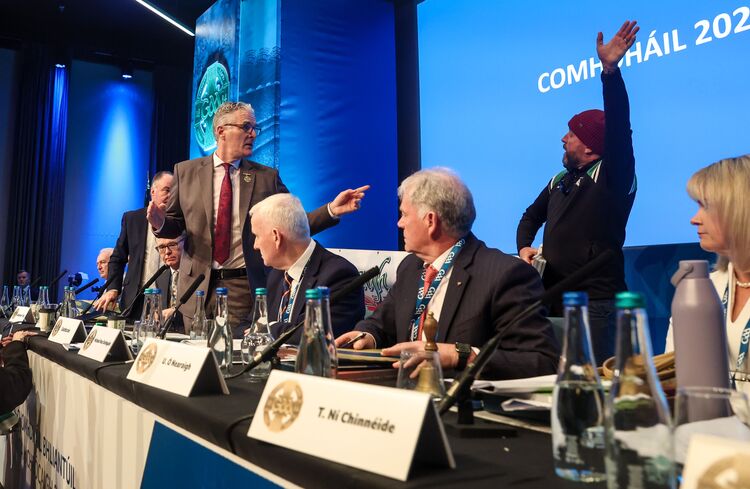Ryan H. Walsh, author of “Astral Weeks: A Secret History of 1968.” PHOTO BY MARISSA NADLER
Page Turner / Edited by Peter McDermott
In 1973, a Boston Globe reviewer noted that Van Morrison “strangely” favored in his live act numbers from “Astral Weeks.” That year saw the release of his seventh studio album and “Astral Weeks,” his second, had never been promoted and was hard to find.
For author Ryan H. Walsh, that comment shows that just five years on, the real story of “Astral Weeks” and its connections to the city that helped make it had already become obscure. In his extraordinary “Astral Weeks: A Secret History of 1968,” Walsh finds that was at least partly because the story was never fully revealed or understood in the first place.
Albums like “Moondance” and “Tupelo Honey” quickly put Morrison on the map in the early 1970s, whereas “Astral Weeks” was to grow in stature over a period of decades. Famed music writer Lester Bangs called it a “mystical document.” Years after Bangs’s endorsement, Bruce Springsteen said: “It made me trust in beauty, it gave me a sense of the divine.” And Martin Scorsese revealed it had been an influence in the making of “Taxi Driver.”
Morrison had a top-40 hit in 1967 with “Brown Eyed Girl” but he fell out with his manager Bert Berns, who wanted more of the same chart-friendly fare. Then the 38-year-old Berns died of a heart attack, and his widow held Morrison partially responsible. Ilene Berns worked to have him deported, which prompted the Belfast man to marry his Californian girlfriend Janet Rigsbee, whom he renamed Janet Planet.
The young couple fled Berns’s mob connections in New York City to Cambridge, Mass., in early 1968. In Boston he looked for a way to reboot his career, all the while honing his new material in cramped spaces like the basement jazz club called the Catacombs.
Walsh tracked down the low-level mobster Carmine “Wassel” DeNoia, who’d applied the physical pressure on Morrison, Joe Smith, the Warner Brothers executive who settled the singer’s contractual difficulties with a $20,000 payoff to gangsters in a Manhattan warehouse, and Lewis Merenstein, the innovative producer who brought the Belfast man back to New York in September to record “Astral Weeks.” (Morrison took his young Boston backing musicians with him, but Merenstein had hired jazz professionals for the three recording sessions. Nonetheless, one of the former, the flautist John Payne, talked his way in and his work is heard on several tracks.)
The album was released just a few weeks after the election of Richard Nixon to the U.S. presidency and a few weeks before mankind went to the far side of the moon via Apollo 8.
Walsh, who is a singer-songwriter with Hallelujah the Hills, interviewed all of the musicians involved – all, that is, except Morrison himself, who once said that in the Boston of 1968, and before that, he didn’t write the songs; rather they “just channeled. They just came through.”
Morrison always had an interest in the occult, which Boston had a history of going back a century and it found new life in the city’s youth counterculture. Walsh tells that story, too, principally by way of the remarkable tale of folk singer Mel Lyman and his cultish Fort Hill Community.
Decades later when suffering from his first romantic heartbreak, Walsh came across “Astral Weeks.” He’d never heard of it and didn’t care much for Morrison anyway, but from “the very first notes, the music seemed to serve as some kind of protection for the part of me that held on to hope and the idea of real love.”
Ryan H. Walsh
Date of birth: Jan. 27.
Place of birth: Newton, Mass.
Spouse: Marissa Nadler
Residence: Boston, Mass.
Published works: “Astral Weeks: A Secret History of 1968”

What is your latest book about?
It's about how my love for Van Morrison's “Astral Weeks” led down a rabbit hole to learn about the 50-year-old history of my home here in Boston. It's about missing tapes, lost gurus, and an inquiry into where creativity comes from.
What is your writing routine? Are there ideal conditions?
I wrote most of this book between 6 and 9 a.m. in the mornings. Not only was my head clearest then, but I also had to go to work each day as well. Setting: some instrumental music, some coffee, surrounded by books and records—all my sources for the story. At night I'd research, conduct interviews, and try re-writes. If I got enough done in a day, I might reward myself by walking up the street to the Brendan Behan Pub for a drink before bed.
What advice do you have for aspiring writers?
Don't ever call yourself an aspiring writer. Just start writing and let other people call you a writer.
Name three books that are memorable in terms of your reading pleasure.
When I read “Infinite Jest" during my first year at Boston University (1997) it really blew my brain open about different ways to tell a story. And to have the novel's setting be, literally, all around—that reading experience is something I'll never forget. A recent non-fiction book I loved was “Do Not Sell At Any Price: The Wild, Obsessive Hunt for the World's Rarest 78rpm Records” by Amanda Petrusich. Such a perfect mix of history and present-day treasure hunting there; all topped by top-notch writing. Any book of poetry by John Ashbery is always worth picking up any day of the year. His poems are like surreal dispatches from your uncle's cabin on the moon.
What book are you currently reading?
Currently I'm reading “Personal Days” by Ed Park. Ed was my book's editor and the whole reason it exists in the first place. He's a novelist and I can't wait to dive into this 2008 book.
Is there a book you wish you had written?
There's a book called “Lynch on Lynch” by Chris Rodley, which is simply a long series of interviews with director/artist David Lynch. I wish I'd written it simply so I could have sat and talked to Mr. Lynch for a few weeks.
Name a book that you were pleasantly surprised by.
“Heads” by Jesse Jarnow. He's such a great researcher/writer, but I heard it had a lot to do with the Grateful Dead, and I've never “got” that band. But, it turned out, that didn't matter in the least; it was such a good book and it kinda inched me towards being a little more open about the Dead, too.
If you could meet one author, living or dead, who would it be?
Thomas Pynchon. I'd be like, “what's with all the mystery and such?”
What book changed your life?
“Woody Guthrie: A Life” by Joe Klein.
What is your favorite spot in Ireland?
Sadly, I've never been! But after writing this book, I'd love to travel to Belfast and see all the spots named checked on “Astral Weeks.”
You're Irish if...
You think your friends telling stories are better than most movies and TV shows.









